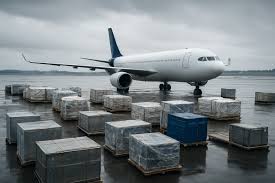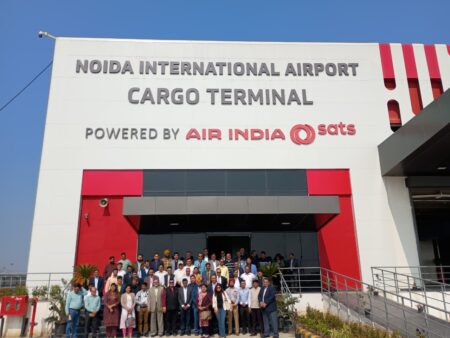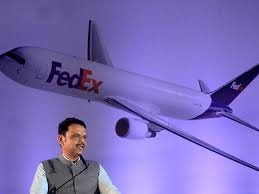In this fast-paced e-commerce era, industry leaders must be quick to adapt to changing landscapes. It’s not just about delivering packages; it’s about understanding what online retailers and their customers truly need.

Government initiatives to bolster the air cargo sector are laudable
To meet the demand for speed and precision, cutting-edge technology, including AI and automation, is crucial. Collaboration with e-commerce giants and tailored services are essential. As we strive for sustainability, eco-friendly aircraft and optimised routes benefit both customers and the environment.
Synergizing collaboration
In the air cargo industry, collaboration is vital. Stakeholders like airlines, airports, and logistics companies must work together to enhance efficiency. Breaking down silos, sharing insights, utilising blockchain for trust, standardising processes, and making collaborative infrastructure investments streamline operations, cut costs, and create a more efficient system. Industry associations play a key role in fostering these collaborations and setting common standards.
AI revolution
The integration of artificial intelligence and machine learning heralds a profound transformation in air cargo operations. In warehousing, these technologies act as meticulous inventory managers, ensuring precise and rapid order fulfilment. For route optimisation, they serve as expert navigators, charting fuel-efficient and cost-effective cargo paths. Predictive analytics take on a proactive maintenance role, identifying potential issues to minimise downtime and cost overruns. In a security-conscious industry, AI-driven cargo screening enhances protocols. These advancements reshape air cargo, fostering efficiency, data-driven decision-making, and heightened security standards, ultimately elevating service quality and reliability for all stakeholders in the industry.
Key considerations
The vision of autonomous cargo drones and urban air mobility is both thrilling and demanding, representing a leap into the future. However, ensuring safety and coexistence with manned aircraft is paramount. Scalability and cost-effectiveness must be addressed to make these innovations practical and accessible. Public acceptance and privacy concerns are valid and require transparent solutions. Realising these technologies demands a collaborative effort involving governments, industry stakeholders, and regulators with a shared vision and unwavering commitment to overcome these multifaceted challenges.
Government’s role
Government initiatives to bolster the air cargo sector are laudable. Technology-driven efforts, like transitioning to a paperless cargo process, enhance customs procedures, reduce delays, and boost security while aligning with global best practices, Infrastructure developments, including airport modernization and cargo facilities, enhance efficiency, lower operational costs, and improve connectivity, ultimately benefiting the air cargo industry.
Future-proofing
The future of air cargo is a dynamic canvas. Over the next 5–10 years, automation will gain prominence, improving operations. Sustainability, with eco-friendly aircraft, will take centre stage. Data analytics will serve as a crystal ball for foreseeing maintenance needs and averting disruptions. Companies must prepare by embracing technology, sustainable practices, and adapting to shifting customer expectations. A proactive approach that ensures agility and responsiveness to market dynamics will be the cornerstone of success in the ever-evolving air cargo landscape.










